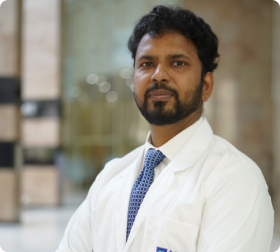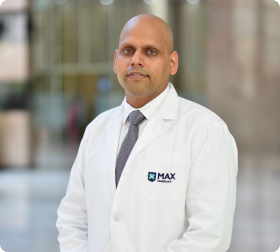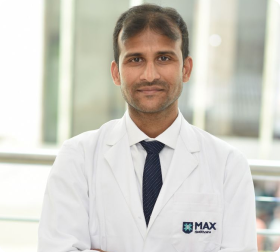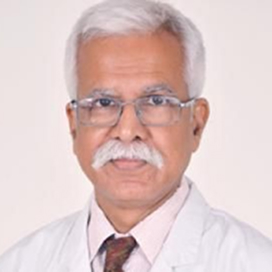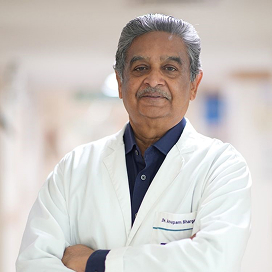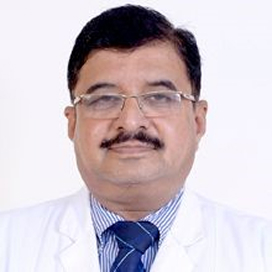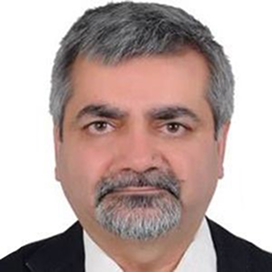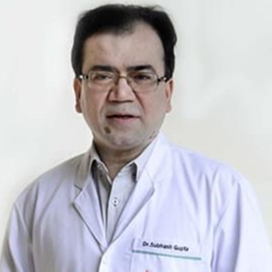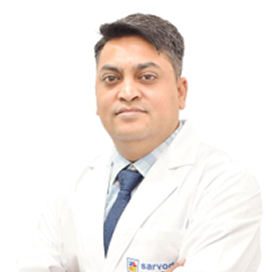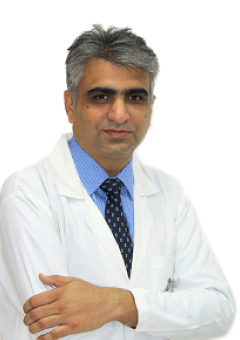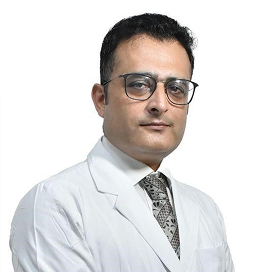Gastric Sleeve Surgery
Gastric sleeve surgery, also known as sleeve gastrectomy, is a popular weight loss surgery in which a large portion of the stomach is removed, leaving a narrow sleeve-shaped stomach. This surgery helps individuals with severe obesity lose weight by reducing the stomach's capacity and limiting food intake. Gastric sleeve surgery also has significant benefits for patients with obesity-related health conditions, including type 2 diabetes, sleep apnea, and hypertension.
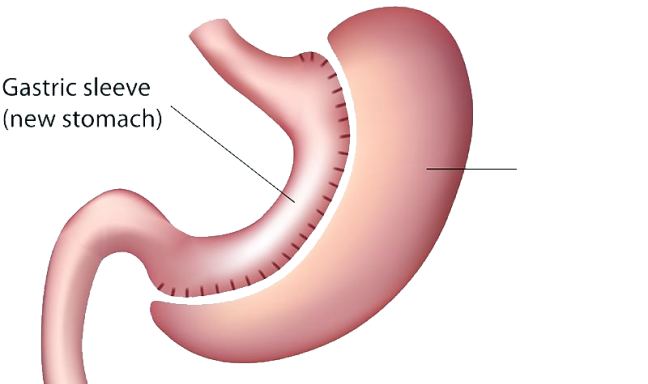
Types of Gastric Sleeve Surgery
-
Description: The most common form of gastric sleeve surgery, performed using laparoscopy. A large portion of the stomach is removed, and the remaining stomach is reshaped into a tube or sleeve.
-
Benefits: Minimal invasion, faster recovery time, no need for a foreign device like a band, and significant weight loss.
-
Description: A non-surgical option where a flexible endoscope is used to staple the stomach and create a smaller, sleeve-shaped pouch. This procedure is less invasive than laparoscopic surgery but is not as widely available.
-
Benefits: Non-invasive, no incisions required, and shorter recovery time. However, weight loss may not be as significant as with laparoscopic sleeve gastrectomy.
1. Laparoscopic Sleeve Gastrectomy (LSG)
2. Endoscopic Sleeve Gastroplasty (ESG)
Who Needs Gastric Sleeve Surgery?
Gastric sleeve surgery is typically recommended for individuals who are severely obese and have failed to lose weight through diet and exercise. The ideal candidates are generally those who meet the following criteria:
-
BMI (Body Mass Index) of 40 or higher, or a BMI of 35 or more with obesity-related health conditions such as type 2 diabetes, heart disease, or sleep apnea.
-
Failure to lose weight through diet and exercise.
-
No medical or psychological conditions that would interfere with the surgery or recovery.
-
Commitment to long-term lifestyle changes, including diet, exercise, and supplementation.
Investigations Required
-
Physical Examination: To assess the patient's general health and check for conditions that might interfere with surgery.
-
Blood Tests: To evaluate liver function, kidney health, and any other underlying conditions.
-
Endoscopy: To check for stomach ulcers, inflammation, or other digestive issues.
-
Chest X-ray: To assess lung and heart function.
-
EKG/ECG: A heart check-up to ensure it’s safe for anesthesia.
-
Psychological Evaluation: To ensure the patient is emotionally and mentally prepared for the changes that come with surgery.
-
Nutritional Assessment: To ensure the patient will be able to follow dietary guidelines post-surgery and avoid nutritional deficiencies.
Procedure: How Gastric Sleeve Surgery is Done
-
The surgery begins with a full pre-operative assessment. General anesthesia is administered to ensure the patient is unconscious during the procedure.
-
Laparoscopic Sleeve Gastrectomy: The surgeon makes a few small incisions in the abdomen. A laparoscope (a small camera) and other surgical instruments are used to remove about 75-80% of the stomach. The remaining portion is then shaped into a tube or sleeve. This reduces the stomach's capacity, which limits food intake and leads to weight loss.
-
Endoscopic Sleeve Gastroplasty: In this less invasive procedure, an endoscope is inserted through the mouth into the stomach. The stomach is then stitched or stapled to create a smaller, sleeve-shaped stomach.
-
Biliopancreatic Diversion with Duodenal Switch: The stomach is reduced in size, and a significant portion of the small intestine is bypassed.
-
After the stomach is reshaped, the incisions are closed with sutures or staples, and the patient is moved to the recovery room. The laparoscopic approach generally takes about 1-2 hours.
1. Preparation
2. Surgical Technique
3. Closing Incisions
Length of Stay in Hospital
The length of stay in the hospital for gastric sleeve surgery is relatively short compared to other bariatric surgeries:
-
Initial Hospital Stay: Typically 1 to 2 days. During this time, the patient is monitored for any complications and to ensure they are recovering well from the anesthesia.
-
Recovery Period: After surgery, the patient will be encouraged to begin drinking fluids and gradually introduce soft foods. Full recovery can take 4-6 weeks.
-
Discharge Criteria: The patient will be discharged once they can consume liquids comfortably, manage pain with oral medications, and show no signs of complications.
Post-Operative Care
Post-operative care is essential to ensure the success of gastric sleeve surgery and help patients adapt to the significant changes that occur after the procedure:
-
Dietary Changes: A strict dietary plan will be followed, starting with clear liquids, then progressing to soft foods, and finally to solid foods. Patients will be instructed to eat smaller portions and chew food thoroughly.
-
Vitamin and Mineral Supplements: Patients will need lifelong supplementation of vitamins and minerals, especially vitamin B12, iron, calcium, and vitamin D, to avoid nutritional deficiencies.
-
Physical Activity: Patients are encouraged to walk and perform light exercises shortly after surgery. Strenuous physical activity should be avoided for at least 6 weeks.
-
Follow-Up Visits: Regular follow-up appointments are necessary to monitor weight loss progress, make adjustments to the diet, and check for any complications such as nutritional deficiencies or dehydration.
-
Psychological Support: Emotional support and counseling may be required as patients adjust to their new eating habits and lifestyle.
Risks of Gastric Sleeve Surgery
While gastric sleeve surgery is generally safe, it does carry some risks, including:
-
Leakage: Leaks in the newly created sleeve-shaped stomach, which can cause infections or other complications.
-
Infection: At the incision sites or internally.
-
Nutritional Deficiencies: Due to reduced stomach size and altered nutrient absorption, patients may develop deficiencies in essential vitamins and minerals.
-
Stomach Ulcers: Some patients may develop ulcers in the remaining stomach portion.
-
Gastroesophageal Reflux Disease (GERD): Gastric sleeve surgery can sometimes worsen GERD or cause new-onset acid reflux.
-
Weight Regain: While the surgery promotes significant weight loss, some patients may experience weight regain over time if they do not adhere to lifestyle changes.
Success Rate of Gastric Sleeve Surgery
Gastric sleeve surgery has a high success rate when patients follow the post-operative guidelines and commit to a healthy lifestyle:
-
General Success Rate: Approximately 60-70% of excess weight is lost within the first 1-2 years after surgery.
-
Health Improvements: Many patients experience improvements in obesity-related health conditions such as type 2 diabetes, hypertension, and sleep apnea.
-
Long-Term Success: Patients who follow dietary recommendations and maintain regular physical activity are more likely to sustain weight loss over the long term. However, there is a small chance of weight regain (around 10-20%) after a few years.
Cost of Gastric Bypass Surgery
The cost of gastric bypass surgery can vary significantly depending on the country, type of surgery, and hospital. Below is an estimated cost table:
| Treatment | Cost Start From ($) | Hospital Stay |
|---|---|---|
| Laparoscopic Sleeve Gastrectomy | 5,500 onwards | 1 - 2 Days |
| Endoscopic Sleeve Gastroplasty | 6,000 onwards | 1 - 2 Days |
At Universelle Medicaid, we work with top hospitals and experienced surgeons to offer gastric sleeve surgery that is safe, effective, and affordable. Let us help you take the first step toward a healthier, more fulfilling life.
TREATMENTS
Obesity Or Bariatric Treatment

Gastric Bypass Surgery
Bladder cancer occurs when abnormal cells grow uncontrollably...
More Information
Gastric Banding Surgery
Gastric banding surgery, also known as laparoscopic adjustable gastric banding (LAGB), is a popular weight loss procedure
More Information
Gastric Sleeve Surgery
Gastric sleeve surgery, also known as sleeve gastrectomy, is a popular weight loss surgery in
More Information
Gastric Bypass Surgery
Bladder cancer occurs when abnormal cells grow uncontrollably...
More Information
Gastric Banding Surgery
Gastric banding surgery, also known as laparoscopic adjustable gastric banding (LAGB), is a popular weight loss procedure
More Information
Gastric Sleeve Surgery
Gastric sleeve surgery, also known as sleeve gastrectomy, is a popular weight loss surgery in
More InformationDoctors
Our Specialist Doctors

Dr. Shashank Chaudhary
Surgical Oncology, Cancer Care


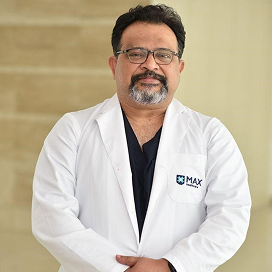
Dr. Vijayant Devenraj
Cardiac Surgery (CTVS), Thoracic


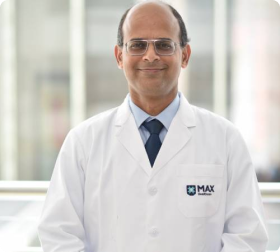
Dr. PrasoonKant Shamshery
Orthopaedics & Joint Replacement


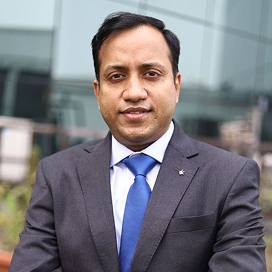
Dr. Vikas Singla
Senior Director & Head – Gastroenterology (Pancreatic-Biliary, Luminal Gastroenterology & Endoscopy Division)


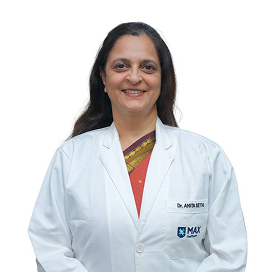
Dr. Anita Sethi
Principal Director & HOD - Ophthalmology (Max Panchsheel & Max Saket)


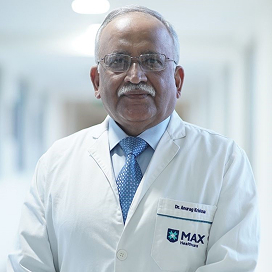
Dr. Anurag Krishna
Chairman - Paediatrics & Paediatric Surgery Paediatric (Ped) Surgery, Paediatric (Ped) Urology



Dr. Bipin Walia
Vice Chairman & Head- Neurosurgery for Max Saket Complex & Vice Chairman- Neurospine, Max Saket


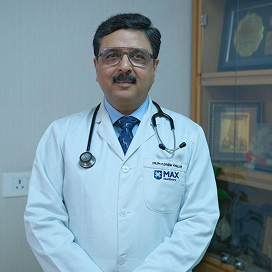
Dr. Dinesh Khullar
Chairman - Nephrology & Renal Transplant Medicine, Max Saket Complex


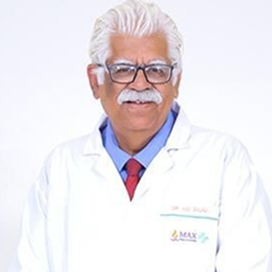
Dr. H.N. Bajaj
Principal Director (Orthopaedics) & Head (Spine Surgery) Orthopaedics & Joint Replacement, Spine Surgery, Arthroscopy & Sports Injury


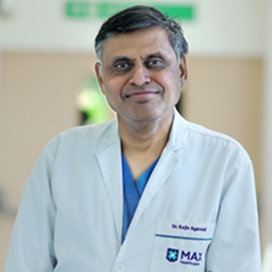
Dr. Harit Chaturvedi
Chairman - Max Institute of Cancer Care Cancer Care / Oncology, Thoracic Oncology, Surgical Oncology, Robotic Surgery, Head & Neck Oncology, Breast Cancer


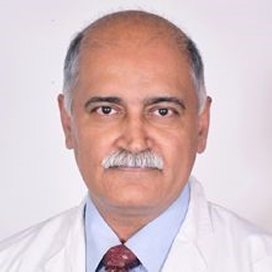
Dr. Kulbhushan Singh Dagar
Principal Director, Chief Surgeon & Head - Neonatal & Congenital Heart Surgery Paediatric (Ped) Cardiac Surgery, Cardiac Sciences, Paediatrics (Ped)



Dr. Pradeep Chowbey
Chairman - Max Institute of Laparoscopic, Endoscopic, Bariatric Surgery & Allied Surgical Specialities



Dr. Sunil Choudhary
Principal Director & Chief of Plastic Surgery (Max Institute of Reconstructive, Aesthetic, Cleft & Craniofacial Surgery (Miracles) Aesthetic And Reconstructive Surgery



Dr. Abhishek Mishra
MBBS, MS - Orthopaedics Orthopedic surgeon, Joint Replacement Surgeon


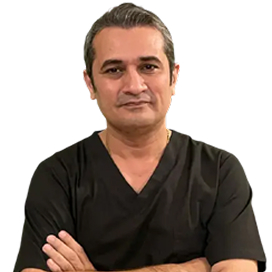
Dr. Vineet Malhotra
MBBS | MS – General Surgery | DNB – Urology/Genito – Urinary Surgery


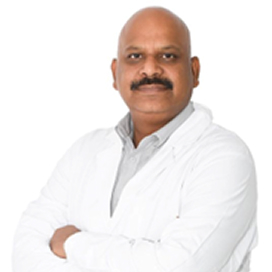
Dr. (Lt Col) Ashok Kumar
Senior Consultant & Head - Radiation Oncology


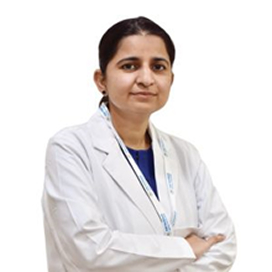
Dr. Aman Jyoti
Senior Consultant – Paediatrics Cardiac Anaesthesia & Cardiac Intensive Care



Dr. Amit Kumar
Associate Director & Head (Unit I) - Interventional Cardiology



Dr. Anushtup De
Senior Consultant & Head (Unit l) - General & Minimally Invasive Surgery


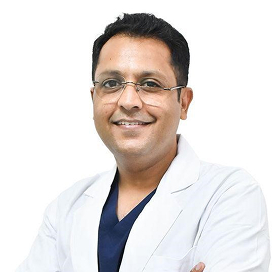
Dr. Arjun Goel
Senior Consultant & Head (Unit II)- General & Minimally Invasive Surgery


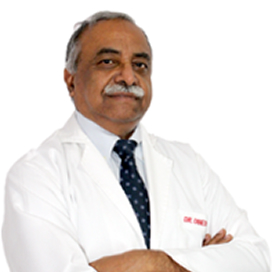
Dr. Dinesh Pendharkar
HOD & Director - Medical Oncology, Cancer Care, Haematology & BMT


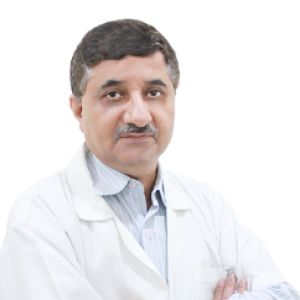
Dr. Subhash Hakoo
HOD & Director - General & Minimally Invasive Surgery



Dr. Sujoy Bhattacharjee
HOD & Director - Robotic Joint Replacement



Dr. Tanmay Pandya
HOD & Director - Nephrology & Renal Transplantation



Dr. Ved Prakash
Senior Consultant & Head - Cardiothoracic & Vascular Surgery



Dr. Anuj Agrawal
Sr. Consultant Department of Orthopaedics & Joint Replacement



Dr. Ashwini Kumar Singh
Senior Consultant & Head Plastic, Reconstructive & Cosmetic Surgery



Dr. Nikhil Gupta
Orthopaedics, Arthroscopy & Joint Replacement Surgery


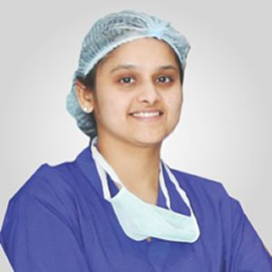
Dr. Sparshi Jain
Consultant in Department of Ophthalmology



Dr. (Maj) Ravi Shankar
Consultant - Haemato-Oncology & BMT MBBS, MD (Pediatrics) Fellowship PHO & BMT



Dr. Amrita Tiwary Vyas
Consultant, Neurosciences/Neurosurgery, Brain & Spine Specialist



Dr. Ankit Agrawal
Consultant, Neurosciences/Neurosurgery, Brain & Spine Specialist


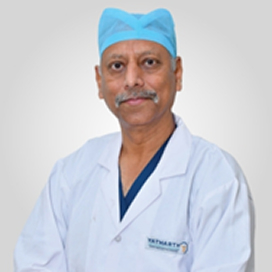
Dr. Sudhir Sharma
Director - Minimal Access, Robotic, Bariatric and General Surgery, MBBS, MS, MBA, FIAGES, FICLS



Dr. Sujoy Bhattacharjee
HOD & Director - Robotic Joint Replacement


Book Appointment
Complete the form below to schedule your appointment.
Begin Your Health Treatment Journey with Us
By utilizing our services, you'll find it easier to improve your well-being and feel better."
Consult Now
